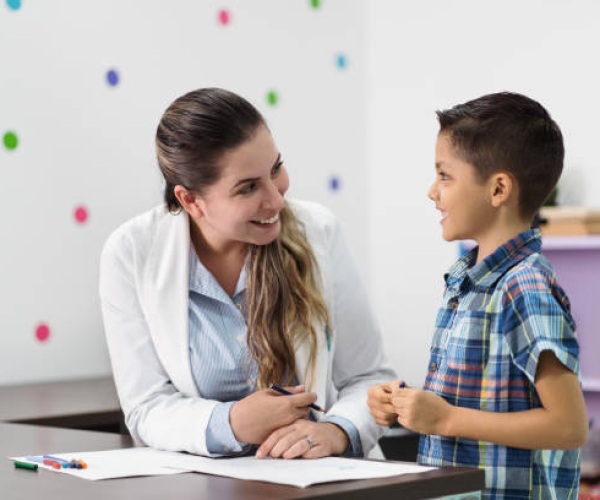Enhancing Social and Emotional Language Development in Young Children

Enhancing Social and Emotional Language Development in Young Children: The Collaboration of Speech Pathology and Psychology
In the lead up to Speech Pathology week later this month, we thought it would be good to have a discussion around how speech pathology and psychology work together to help children experiencing social and emotional difficulties.
In the journey of childhood development, the ability to communicate effectively is not merely about uttering words—it’s about mastering the intricate dance of social interaction and emotional expression. For parents navigating concerns about their child’s language development, understanding the roles of speech pathology and psychology can provide clarity and effective strategies for support.
Understanding Social Communication Delays
Social communication delays encompass a spectrum of challenges that affect a child’s ability to interact with others effectively. These delays can manifest in various forms, from difficulties in understanding non-verbal cues to struggles with initiating or maintaining conversations. For parents, recognising these signs early is crucial as it allows for timely intervention, which significantly enhances outcomes.
The Role of Speech Pathology
Speech Pathologists (SP’s) are pivotal in diagnosing and treating speech and language disorders. When it comes to social communication delays, SP’s assess a child’s ability to use language in social contexts. They evaluate skills such as turn-taking, understanding gestures and facial expressions, and interpreting tone of voice—all essential components of effective communication.
SP’s employ evidence-based techniques to target specific areas of need. For instance, they might use structured play activities to encourage interaction or incorporate visual aids to support comprehension. Their goal is not only to improve linguistic abilities but also to foster confidence in social settings, empowering children to engage meaningfully with peers and adults alike.
The Integrative Approach: Psychology’s Contribution
Psychologists supporting child development complement the efforts of SP’s by addressing the psychological aspects influencing communication. They delve into the emotional and behavioural facets that underpin a child’s ability to connect with others. Psychologists may assess factors such as anxiety, social skills deficits, or other developmental concerns that can impact social communication.
Through assessments and tailored interventions, psychologists provide insights into a child’s emotional regulation, empathy development, and social cognition—skills that are integral to navigating interpersonal relationships. Collaborating closely with SP’s, psychologists ensure a holistic approach that addresses both the linguistic and psychological dimensions of social communication delays.
Practical Strategies for Parents
For parents concerned about their child’s social communication skills, there are several proactive steps they can take:
Early Intervention:
Don’t hesitate to seek professional support if you notice delays or difficulties in your child’s communication skills. Early intervention can lead to significant improvements in outcomes.
Educational Support:
Work closely with SP’s and psychologists to understand your child’s strengths and areas of improvement. They can provide strategies tailored to your child’s specific needs.
Home Environment:
Foster a supportive environment at home that encourages communication. Engage in activities that promote turn-taking, listening, and responding appropriately.
Modelling Behaviour:
Children learn by observing. Model effective communication and emotional reaction techniques and encourage interactions with siblings, peers, and family members.
Patience and Persistence:
Progress in social communication skills can take time. Celebrate small victories and remain patient throughout the journey.
Why Choose Prosper Health Collective?
At Prosper Health Collective, we understand the complexities of child development and the profound impact of effective communication on social and emotional well-being. Our team of dedicated professionals (including experienced SP’s and child psychologists) work collaboratively to provide comprehensive assessments and evidence-based interventions.
By combining expertise in speech pathology and psychology, we offer tailored support that addresses the unique needs of each child. Whether your concern is mild communication delays or more complex developmental challenges, our clinic is committed to partnering with you to achieve meaningful progress.
Conclusion
Navigating social communication delays in children requires a multidisciplinary approach that integrates the expertise of speech pathology and psychology. At Prosper Health Collective, we are passionate about empowering children to communicate confidently and connect meaningfully with others. By prioritising early intervention and personalised care, we aim to support every child in reaching their full potential.
For parents seeking reliable guidance and effective solutions, Prosper Health Collective stands as a trusted partner in your child’s developmental journey. Together, let’s nurture the social and emotional language skills that pave the way for a brighter future.
Inquire today on 6381 0071 to learn more about how we can support your child’s social communication development. Your child’s journey to enhanced communication starts here, at Prosper Health Collective.